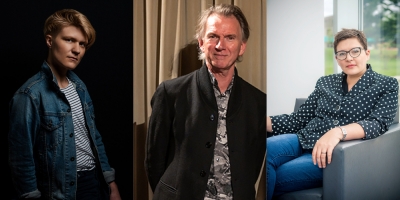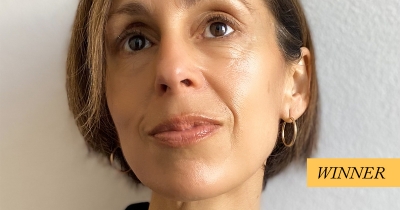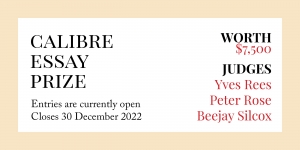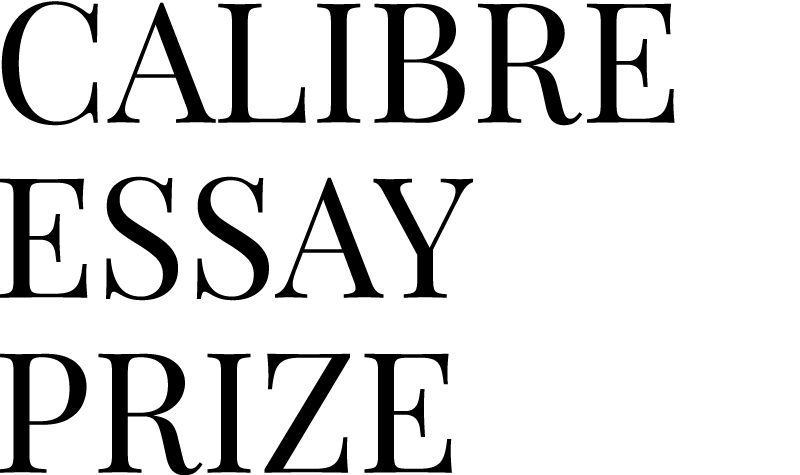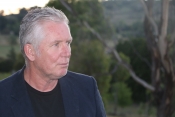Competitions and programs (95)
2023 Calibre Essay Prize Judges
 Yves Rees is a Lecturer in History at La Trobe University and author of All About Yves: Notes from a transition (Allen & Unwin 2021). Their essay ‘Reading the Mess Backwards’ won the 2020 Calibre Essay Prize. A co-host of the history podcast Archive Fever, Yves is a regular contributor to ABC radio and The Conversation, and their work has appeared in ABR, Overland, Guardian Australia, Inside Story, and Archer.
Yves Rees is a Lecturer in History at La Trobe University and author of All About Yves: Notes from a transition (Allen & Unwin 2021). Their essay ‘Reading the Mess Backwards’ won the 2020 Calibre Essay Prize. A co-host of the history podcast Archive Fever, Yves is a regular contributor to ABC radio and The Conversation, and their work has appeared in ABR, Overland, Guardian Australia, Inside Story, and Archer.
 Beejay Silcox is an Australian writer and critic, and was the ABR Fortieth Birthday Fellow. Her literary criticism and cultural commentary appear in national arts publications such as ABR and Times Literary Supplement. Her award-winning short stories have been published at home and abroad.
Beejay Silcox is an Australian writer and critic, and was the ABR Fortieth Birthday Fellow. Her literary criticism and cultural commentary appear in national arts publications such as ABR and Times Literary Supplement. Her award-winning short stories have been published at home and abroad.
 Peter Rose has been Editor of Australian Book Review since 2001. Previously he was a publisher at Oxford University Press. His reviews and essays have appeared mostly in ABR. He has published six books of poetry, two novels, and a family memoir, Rose Boys (Text Publishing), which won the 2003 National Biography Award.
Peter Rose has been Editor of Australian Book Review since 2001. Previously he was a publisher at Oxford University Press. His reviews and essays have appeared mostly in ABR. He has published six books of poetry, two novels, and a family memoir, Rose Boys (Text Publishing), which won the 2003 National Biography Award.
Tracy Ellis wins the 2022 ABR Elizabeth Jolley Short Story Prize
Australian Book Review is delighted to announce that Tracy Ellis is the winner of this year’s ABR Elizabeth Jolley Short Story Prize for her story ‘Natural Wonder’. She receives $6,000. This year’s prize – worth a total of $12,500 – received 1,338 entries from thirty-six different countries. Nina Cullen placed second and receives $4,000 for her story ‘Dog Park’, and C.J. Garrow placed third and receives $2,500 for his story ‘Whale Fall’.
The 2022 Jolley Prize was judged by Amy Baillieu, Melinda Harvey, and John Kinsella. The judges’ report, as well as the full longlist, can be found below.
Each of the shortlisted stories are published in the 2022 August issue (purchase single issues here). ABR extends a warm congratulations to Tracy Ellis, Nina Cullen, and C.J. Garrow, as well as to the longlisted entrants. Thank you to all who entered this year’s prize. We look forward to receiving your entries next year.
Winner
Tracy Ellis
for ‘Natural Wonder’
 Tracy Ellis lives in Sydney and works as an editor in digital and print media. She has a Master’s in Creative Writing from UTS and was previously longlisted for ABR’s Calibre Essay Prize.
Tracy Ellis lives in Sydney and works as an editor in digital and print media. She has a Master’s in Creative Writing from UTS and was previously longlisted for ABR’s Calibre Essay Prize.
Second
Nina Cullen
for ‘Dog Park’
 Nina Cullen is a Newcastle-based writer whose work has appeared in various Australian and international publications. She has just finished a collection of linked short stories and is working on a novel.
Nina Cullen is a Newcastle-based writer whose work has appeared in various Australian and international publications. She has just finished a collection of linked short stories and is working on a novel.
Third
C.J. Garrow
for ‘Whale Fall’
 C.J. Garrow is a Melbourne writer whose fiction has been shortlisted for various international prizes. His story ‘Egg Timer’ was shortlisted in the 2020 Jolley Prize.
C.J. Garrow is a Melbourne writer whose fiction has been shortlisted for various international prizes. His story ‘Egg Timer’ was shortlisted in the 2020 Jolley Prize.
Full longlist
‘by the hour’ by Diana Clarke (New Zealand)
‘Dog Park’ by Nina Cullen (NSW) - shortlisted
‘Case Notes’ by Sonja Dechian (Vic.)
‘Natural Wonder’ by Tracy Ellis (NSW) - shortlisted
‘Whale Fall’ by C.J. Garrow (Vic.) - shortlisted
‘And Then There Is Pink’ by Madison Griffiths (Vic.)
‘Glads’ by Susan Hettinger (United States)
‘half-moons filled with jam’ by Andy Kovacic (NSW)
‘Born for You’ by Magdalena McGuire (Vic.)
‘The Mend’ by Bruce Meyer (Canada)
‘Blowing Up’ by Alec Patrić (Vic.)
‘Not-John’ by Jonathan Ricketson (Vic.)
‘Zamek’ by Alex Skovron (Vic.)
‘human material’ by Tracey Slaughter (New Zealand)
Judges’ comments
In ‘Natural Wonder’, the narrator watches over three boys – her son and his two cousins – as they spend the first days of a new year playing at a beach on Sydney harbour. This story of children swimming and fencing with toy lightsabers on the sand has a gently melancholic undertow: it emerges that the cousins have experienced the recent trauma of losing their mother. The narrator feels a strong urge to protect and comfort her nephews but she is also drawn to ideas of escape and freedom. The story is remarkable for its quietness, acknowledgement of knotty feelings, and the room it makes for small miracles.
In the tense and atmospheric story ‘Dog Park’, Georgie takes her young son Max on a midday visit to the park where she watches from a shaded bench while he plays. Georgie’s protective love for her son infuses the story even as her desperate longing to shield him from potential pain or humiliation leads to growing tensions and an unsettling confrontation. ‘Dog Park’ is a tender examination of the evolving relationship between an anxious mother and her growing child that is filled with nuanced observations and telling details. The complex interactions between the characters in this story are particularly convincing.
The bullying of Bernard Tusk at a school for boys ‘of shallow prospects’ is conveyed in a wry, uncanny, and almost defamiliarising way in ‘Whale Fall’, which uses the beaching of a whale carcass as a metaphor for pointless death. As an implicated but also threatened observer, the narrator takes us through the destruction of Tusk who, like all the younger boys, vaguely seeks ‘cool’, but can’t attain it. The triggering complicity of the narrator is both strangely self-exonerating and self-accusatory as he tries to figure out his role between collusion and empathy. The story skilfully examines a fraught complicity and guilt.
ABR warmly acknowledges the generous support of ABR Patron Ian Dickson, who makes the Jolley Prize possible in this lucrative form. We congratulate all the longlisted and shortlisted authors.
Previous winners
Subscribers to ABR can read previous prize-winning stories to the Jolley Prize. To read these stories, click here.
If you aren't a subscriber, digital subscriptions begin at only $10 per month. Click here to become an ABR subscriber.
2023 Porter Prize Judges
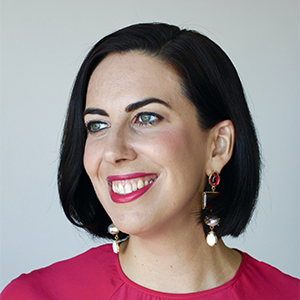 Sarah Holland-Batt is the author of three volumes of poetry, most recently The Jaguar (UQP, 2022), and a book of essays, Fishing for Lightning: The spark of poetry (UQP, 2021). She has received a number of honours, including the Prime Minister’s Literary Award for Poetry, a Sydney Myer Creative Fellowship, and the Judy Harris Writer in Residence Fellowship at the University of Sydney’s Charles Perkins Centre. Sarah is Professor of Creative Writing at QUT and Chair of the ABR Board.
Sarah Holland-Batt is the author of three volumes of poetry, most recently The Jaguar (UQP, 2022), and a book of essays, Fishing for Lightning: The spark of poetry (UQP, 2021). She has received a number of honours, including the Prime Minister’s Literary Award for Poetry, a Sydney Myer Creative Fellowship, and the Judy Harris Writer in Residence Fellowship at the University of Sydney’s Charles Perkins Centre. Sarah is Professor of Creative Writing at QUT and Chair of the ABR Board.
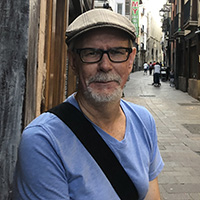 Des Cowley is Principal Librarian, History of the Book and Arts, at State Library Victoria. He is co-author of The World of the Book (MUP, 2007), and co-editor of Creating and Collecting: Artists’ books in Australia (2015). He recently edited the Collected Prose Poems of Gary Catalano and is editor of the Red Letter series of poetry chapbooks, published by Life Before Man press.
Des Cowley is Principal Librarian, History of the Book and Arts, at State Library Victoria. He is co-author of The World of the Book (MUP, 2007), and co-editor of Creating and Collecting: Artists’ books in Australia (2015). He recently edited the Collected Prose Poems of Gary Catalano and is editor of the Red Letter series of poetry chapbooks, published by Life Before Man press.
 James Jiang is Assistant Editor at ABR. He was awarded his PhD in English from the University of Cambridge and taught for a number of years at the University of Melbourne. He has written for a variety of publications in Australia and abroad on poetry, critical culture, diasporic literature, and sport.
James Jiang is Assistant Editor at ABR. He was awarded his PhD in English from the University of Cambridge and taught for a number of years at the University of Melbourne. He has written for a variety of publications in Australia and abroad on poetry, critical culture, diasporic literature, and sport.
The 2023 Calibre Essay Prize is now open for entries
Status: Open for entries
Prize money: $7,500
Dates: 14 October 2022 – 30 December 2022, 11:59 pm
Judges: Yves Rees, Peter Rose and Beejay Silcox
Enter the 2023 Calibre Essay Prize
Past winners
Click the link for more information about past winners and to read their essays.
FAQs and Terms and Conditions
Please read our Frequently Asked Questions before contacting us with queries about the Calibre Prize.
Before entering the Calibre Essay Prize, all entrants must read the Terms and Conditions.
Exclusivity
Entries may be offered elsewhere during the judging of the Calibre Prize. If an entrant is longlisted and has their essay offered elsewhere, the entrant will have 24 hours to decide if they would like to withdraw their essay on offer elsewhere or from the Calibre Prize. Exclusivity is essential for longlisted essays. The overall winning essay will be published in the April 2023 issue, followed by the runner-up.
Entry fees
Current ABR subscribers: $20
Standard/non subscribers: $30*
*All non-subscribers will automatically receive four-month digital access to ABR free of charge.
Entry + subscription bundles
Entry + 1-year digital subscription: $90
Entry + 1-year print subscription (Australia): $110
Entry + 1-year print subscription (NZ and Asia): $190
Entry + 1-year print subscription (Rest of World): $210
Those who purchase a subscription while entering will be able to submit subsequent entries at the subscriber rate ($20).
ABR warmly acknowledges the generous support of ABR Patrons Mary-Ruth Sindrey and Peter McLennan.
2023 Peter Porter Poetry Prize
First prize: $6,000AUD
Four other shortlisted poets: $1,000AUD
Status: Entries closed on 3 October 2022
Judges: Sarah Holland-Batt, Des Cowley, and James Jiang
Entries have now closed for the nineteenth Peter Porter Poetry Prize, for which all poets writing in English are eligible. Entries were open from 11 July until 3 October 2022. This year the Porter Prize is worth a total of $10,000 – with a first prize of $6,000.
Entries must be an original single-authored poem of not more than 70 lines. Poems must not have been previously published. The five shortlisted poems will be published in the January–February 2023 issue and the winner will be announced at a ceremony later that month.
The Peter Porter Poetry Prize is one of Australia’s most lucrative and respected poetry awards. It honours the life and work of the great Australian poet Peter Porter (1929–2010), an honoured contributor to ABR for many years. All poets writing in English are eligible to enter.
Before entering the Porter Prize, all poets must read the Terms and Conditions. Please read our Frequently Asked Questions before contacting us with queries about the Porter Prize.
Click here for more information about past winners and to read their poems.
To stay updated on the Porter Prize and Australian Book Review’s other prizes, please sign up for our ‘Prizes and Programs’ newsletter.
Entry fees
Online entry (current ABR subscriber) - $15
Online entry (standard/non subscriber) - $25*
- Non-subscribers will receive digital access to ABR free of charge for four months.
Special online entry + subscription bundles
Subsequent entries may be submitted at the subscriber rate
Online entry + digital ABR subscription - $85
Online entry + Print subscription (Australia) - $100
Online entry + Print subscription (NZ and Asia) - $190
Online entry + Print subscription (Rest of World) - $210
We gratefully acknowledge the long-standing support of Morag Fraser AM and Andrew Taylor AM and support in memory of Kate Boyce.
2022 Calibre Essay Prize Winner and Shortlist
Distinguished classical musician Simon Tedeschi has won the sixteenth Calibre Essay Prize, worth a total of $7,500.
Tedeschi receives $5,000 for his essay ‘This Woman My Grandmother’, while the runner-up, Sarah Gory receives $2,500 for her submission, ‘Ghosts, Ghosts Everywhere’. The winning essay was published in the May 2022 issue of ABR. The runner-up essay appeared in the September 2022 issue.
The judges – Declan Fry, Beejay Silcox and Peter Rose, Editor of ABR – selected a shortlist of twelve essays from a field of 569 entries from seventeen different countries. The ten other essays making up the shortlist are listed below.
Congratulations to Simon Tedeschi and all the writers shortlisted in the 2022 Calibre Essay Prize!
In ‘This Woman My Grandmother’, Tedeschi explores his grandmother’s story:
‘My grandmother, a Polish Jew, the only survivor of a family obliterated by the Nazis, wrote a memoir of her wartime years shortly before she died sixteen years ago. Only recently was I able to bring myself to read it. When I did, it caused not only a torrent of memory to erupt but spurred me to find out more about this tormented woman who, despite her vociferousness and overbearing presence, was the bearer of secrets too painful to divulge.’
The judges commented on Simon Tedeschi’s essay:
This year’s winning essay has a powerful, memorable duality: it’s at once forceful and gentle, timeless and timely. While Tedeschi plays with eternal themes – the fragility of memory and intergenerational anguish – there is also a quiet urgency to his account of his grandmother, Lucy’s, complicated legacy. We stand on the cusp of a great forgetting: the Holocaust is fading from living memory, and Covid is ravaging our elderly. As we lose our story-keepers and war rages in Europe, it feels vital not just to honour the past, but to acknowledge its knots and nuances. That is what Tedeschi has done in this remarkable essay, with grace, care, and glorious prose craft.
2022 Calibre Essay Prize Shortlist:
Linda Atkins (NSW): ‘Shouting Abortion’
Jessie Berry-Porter (Vic): ‘Milos As a Symbol’
Chrysanthi Diasinos (NSW): ‘Οι παρχαρομάνες και το χρυσόραμμαν’
Michael Garbutt (NSW): ‘The Museum of Mankind’
Savannah Hollis (Vic): ‘The Diary of a Bottom Bitch’
Heather Taylor Johnson (SA): ‘The Giving and Taking Away of Voice’
Michaela Keeble (NZ): ‘The Bind: On Reading’
Emma Shortis (Vic): ‘American Guns’
Kirsten Tranter (USA): ‘The Time of Writing’
Miriam Webster (Vic): ‘The Trouble with Endings’
2022 Jolley Prize Judges
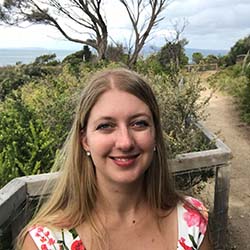 Amy Baillieu is Deputy Editor of Australian Book Review. She completed a Masters of Publishing and Communications at the University of Melbourne in 2011 and holds a Bachelor of Arts from the same university. Prior to becoming Deputy Editor of ABR in 2012, she worked in other editorial roles at the magazine and was Philanthropy Manager from 2011–12. She regularly reviews fiction for ABR and also works as a freelance editor.
Amy Baillieu is Deputy Editor of Australian Book Review. She completed a Masters of Publishing and Communications at the University of Melbourne in 2011 and holds a Bachelor of Arts from the same university. Prior to becoming Deputy Editor of ABR in 2012, she worked in other editorial roles at the magazine and was Philanthropy Manager from 2011–12. She regularly reviews fiction for ABR and also works as a freelance editor.
 Melinda Harvey is a book critic who has written for a wide variety of publications, including ABR, since 2004. She is on the judging panel of the Miles Franklin Literary Award (2017-present) and works on the Stella Count. She currently holds a JUNCTURE Fellowship for Mid-Career and Established Critics at the Sydney Review of Books and is Lecturer in English at Monash University.
Melinda Harvey is a book critic who has written for a wide variety of publications, including ABR, since 2004. She is on the judging panel of the Miles Franklin Literary Award (2017-present) and works on the Stella Count. She currently holds a JUNCTURE Fellowship for Mid-Career and Established Critics at the Sydney Review of Books and is Lecturer in English at Monash University.
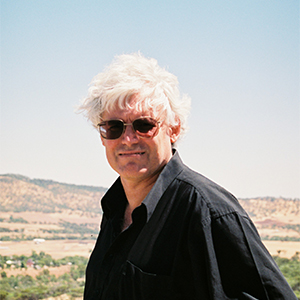 John Kinsella is the author of over forty books. His most recent publications include the short story collection Pushing Back (Transit Lounge, 2021) and the poetry collection Supervivid Depastoralism (Vagabond, 2021). The first volume of his Collected Poems, The Ascension of Sheep, is due out shortly with UWAP (2022). He is a Fellow of Churchill College, Cambridge University, and Emeritus Professor at Curtin University. With Tracy Ryan he is the co-editor of The Fremantle Press Anthology of The Western Australian Poetry (2017). He lives with his family in the Western Australian wheatbelt.
John Kinsella is the author of over forty books. His most recent publications include the short story collection Pushing Back (Transit Lounge, 2021) and the poetry collection Supervivid Depastoralism (Vagabond, 2021). The first volume of his Collected Poems, The Ascension of Sheep, is due out shortly with UWAP (2022). He is a Fellow of Churchill College, Cambridge University, and Emeritus Professor at Curtin University. With Tracy Ryan he is the co-editor of The Fremantle Press Anthology of The Western Australian Poetry (2017). He lives with his family in the Western Australian wheatbelt.
2022 Peter Porter Poetry Prize Winner
Anthony Lawrence is the winner of the 2022 Peter Porter Poetry Prize worth a total of $10,000. This was announced at an online ceremony on January 19.
Anthony receives $6,000 for his winning poem, 'In the Shadows of Our Heads', while the four other shortlisted poets – Chris Arnold, Dan Disney, Michael Farrell, and Debbie Lim – each receive $1,000. The full shortlist, including the winning poem, is available to read online and is published in the January–February issue of ABR.
This year’s judges – Sarah Holland-Batt, Jaya Savige, and Anders Villani – shortlisted five poems from 1,328 entries, from 34 countries.
Congratulations to Anthony Lawrence and to all the poets shortlisted and longlisted in the 2022 Peter Porter Poetry Prize!
In their report the judges noted:
Brimming with surprise, supple, pitch-perfect imagery, linguistic energy and wit, ‘In the Shadows of Our Heads’ is a stunningly vibrant poem by a masterful technician at the top of his game. This unusual love poem revels in the unpredictability of those connections, intellectual and physical, forged between simpatico minds and damaged bodies across space and time. A vivid, potent reminder of love’s dance of proximity and distance – at a time when these fundamental bases of human intimacy have been thrown into fraught relief – it is a work deftly attuned to our present moment.
In the Shadows of Our Heads
by Anthony Lawrence
I’d called the Humane Society to report the neglect
of a neighbour’s dogs. A woman assured me there
would be an investigation, took my details, then asked
if I needed more assistance. I mentioned the flightless
swans of Malta, and she said Imagine, ten thousand years,
then added They were the size of the pygmy elephants
that also roamed the island. To test her liability
to respond in a capering manner, I described the pattern
of my sleep and how, after drinking Akvavit, my cells
become part of the dust of the Horse Head Nebula.
Your astral projection is world class, she said. I could
see a swivel chair, the noise-cancelling headset, a light
blue blouse embroidered with a hook or claw symbol,
the windows of light on her shoes. Are your projections
always so peregrinatory? I’m curious, as I sense I’m far
too fond of the regional. Satisfied, I felt compelled to ask
if Spring, in the mountains, had ever crossed her radar
as a good season and reason for marriage, but chose
instead to invite her for a drink. I don’t date, but we
could drive, as long as you’re partial to Elgar’s
‘Nimrod’, anything by Wagner, and my minder, Karl,
who, depending on his mood, likes to follow at a clip
or respectful distance in his Beamer. I laughed. Alright,
she said, His name is Bob, he’s either a serial tail-gater,
or he moves like a tortoise in his Triumph Mayflower.
On Sunday morning, her music darkening the speakers,
we passed the wreckage of housing estates, then onto
a road lined with trees that cast flickering lines
of light and shade like a view through the arrow-slit
of a zoetrope. We opened the past and found things
worth sharing. As a child she’d been orphaned when,
escaping a forest fire, the family car had come adrift
in smoke and driven off a bridge. She had lost an eye
and her spine had been broken. The monocular vision
and limp had ended her ribbon-floor exercise routine.
When we met, she had approached like someone
leaning into wind. I told her I’d stolen meteor samples
from an observatory on a school excursion. This had led
to frequent stealing, and when I said kleptomania,
I lowered my voice and concluded the confession
with the words illness, serial, and the eight-point-turn
of psychopharmacological. When we stopped for lunch,
I sat across from her by a river whose patchwork surface
she described as snake skins sewn haphazardly together.
I saw the glass eye, and she said Ocular. Three perfect
syllables, then they ruined everything with Prosthesis.
Her hand hovered briefly over mine before moving on.
I said nothing and she took a long time to answer it.
We discussed rescue dogs and how certain bats would
make good pets if only their bites weren’t potentially
lethal, causing fever and delirium. At fifteen, she had
run away to live in a trilogy of Mervyn Peake novels.
I suggested we return via a pub where the Guinness
is collared velvet, the music live. As we stood, the flame
of a kingfisher fluttered on like a pilot light and went out
in the shadows of our heads.
_____________
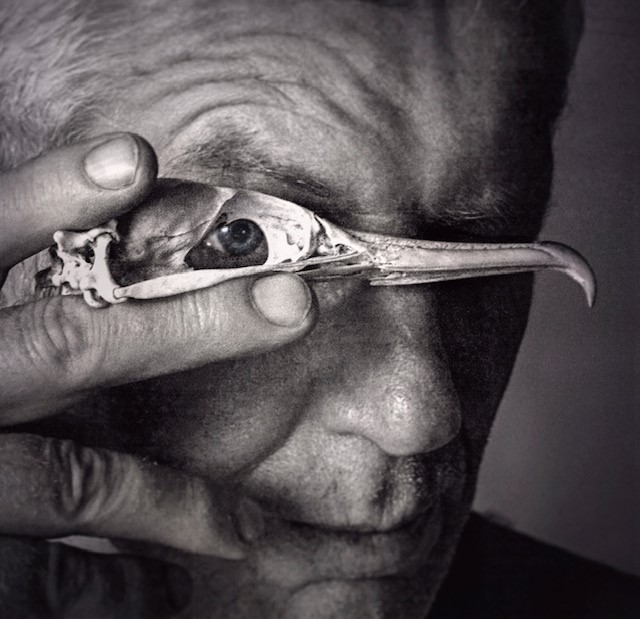 Anthony Lawrence has published sixteen books of poems, the most recent being Ken (Life Before Man, 2020). His books and individual poems have won a number of awards, including the Peter Porter Poetry Prize, the Prime Minister’s Literary Award for Poetry, the Philip Hodgins Memorial Medal, and the Blake Poetry Prize. A new book of poems, Ordinary Time, a collaboration with the poet Audrey Molloy, is to be published in 2022. He teaches Creative Writing at Griffith University, Queensland, and lives on Moreton Bay.
Anthony Lawrence has published sixteen books of poems, the most recent being Ken (Life Before Man, 2020). His books and individual poems have won a number of awards, including the Peter Porter Poetry Prize, the Prime Minister’s Literary Award for Poetry, the Philip Hodgins Memorial Medal, and the Blake Poetry Prize. A new book of poems, Ordinary Time, a collaboration with the poet Audrey Molloy, is to be published in 2022. He teaches Creative Writing at Griffith University, Queensland, and lives on Moreton Bay.
Further information
The Peter Porter Poetry Prize is one of Australia’s most prestigious poetry awards.
Subscribe to ABR to gain access to this issue online, plus the ABR archive.
Click here for more information about past winners.
We gratefully acknowledge the long-standing support of Morag Fraser AM and Andrew Taylor AM.
2022 Elizabeth Jolley Short Story Prize
ABR is delighted to announce the shortlist for the 2022 ABR Elizabeth Jolley Short Story Prize. The shortlisted stories, which appear in our August issue, are (in alphabetical order):
‘Dog Park’ by Nina Cullen
‘Natural Wonder’ by Tracy Ellis
‘Whale Fall’ by C.J. Garrow
The overall winner, who will receive $6,000 from the total prize money of $12,500, will be announced at a special online ceremony at 6pm on 11 August. This is a free event and all are welcome but please contact us to register your interest at This email address is being protected from spambots. You need JavaScript enabled to view it. so that we can send you the Zoom link on the morning of the event.
The 2022 Jolley Prize was judged by Amy Baillieu, Melinda Harvey, and John Kinsella. The judges’ report, as well as the full longlist, can be found below.
The Jolley Prize Shortlist
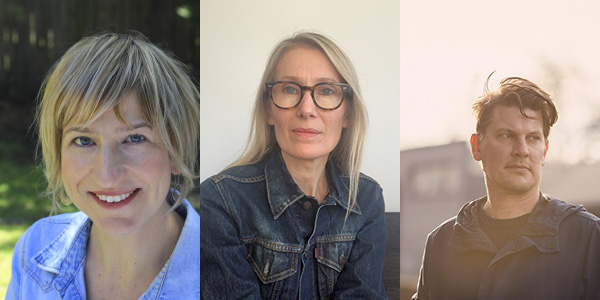 The 2022 Jolley Prize shortlisted authors
The 2022 Jolley Prize shortlisted authors
(L-R): Nina Cullen, Tracy Ellis, and C.J. Garrow
Nina Cullen for ‘Dog Park’
Nina Cullen is a Newcastle-based writer whose work has appeared in various Australian and international publications. She has just finished a collection of linked short stories and is working on a novel.
Tracy Ellis for ‘Natural Wonder’
Tracy Ellis lives in Sydney and works as an editor in digital and print media. She has a Master’s in Creative Writing from UTS and was previously longlisted for ABR’s Calibre Essay Prize.
C.J. Garrow for ‘Whale Fall’
C.J. Garrow is a Melbourne writer whose fiction has been shortlisted for various international prizes. His story ‘Egg Timer’ was shortlisted in the 2020 Jolley Prize.
Full longlist
‘by the hour’ by Diana Clarke (New Zealand)
‘Dog Park’ by Nina Cullen (NSW) - shortlisted
‘Case Notes’ by Sonja Dechian (Vic.)
‘Natural Wonder’ by Tracy Ellis (NSW) - shortlisted
‘Whale Fall’ by C.J. Garrow (Vic.) - shortlisted
‘And Then There Is Pink’ by Madison Griffiths (Vic.)
‘Glads’ by Susan Hettinger (United States)
‘half-moons filled with jam’ by Andy Kovacic (NSW)
‘Born for You’ by Magdalena McGuire (Vic.)
‘The Mend’ by Bruce Meyer (Canada)
‘Blowing Up’ by Alec Patrić (Vic.)
‘Not-John’ by Jonathan Ricketson (Vic.)
‘Zamek’ by Alex Skovron (Vic.)
‘human material’ by Tracey Slaughter (New Zealand)
Judges’ Comments
This year we received 1338 stories from thirty-six different countries, a testament to ongoing international interest in the Jolley Prize and the magazine. Writers explored themes and topics including the pandemic, climate change, grief, desire, parenthood, and community across a range of genres. Here are the judges’ comments on the three shortlisted stories (presented here, as in the issue, in alphabetical order):
In the tense and atmospheric story ‘Dog Park’, Georgie takes her young son Max on a midday visit to the park where she watches from a shaded bench while he plays. Georgie’s protective love for her son infuses the story even as her desperate longing to shield him from potential pain or humiliation leads to growing tensions and an unsettling confrontation. ‘Dog Park’ is a tender examination of the evolving relationship between an anxious mother and her growing child that is filled with nuanced observations and telling details. The complex interactions between the characters in this story are particularly convincing.
In ‘Natural Wonder’, the narrator watches over three boys – her son and his two cousins – as they spend the first days of a new year playing at a beach on Sydney harbour. This story of children swimming and fencing with toy lightsabers on the sand has a gently melancholic undertow: it emerges that the cousins have experienced the recent trauma of losing their mother. The narrator feels a strong urge to protect and comfort her nephews but she is also drawn to ideas of escape and freedom. The story is remarkable for its quietness, acknowledgement of knotty feelings, and the room it makes for small miracles.
The bullying of Bernard Tusk at a school for boys ‘of shallow prospects’ is conveyed in a wry, uncanny, and almost defamiliarising way in ‘Whale Fall’, which uses the beaching of a whale carcass as a metaphor for pointless death. As an implicated but also threatened observer, the narrator takes us through the destruction of Tusk who, like all the younger boys, vaguely seeks ‘cool’, but can’t attain it. The triggering complicity of the narrator is both strangely self-exonerating and self-accusatory as he tries to figure out his role between collusion and empathy. The story skilfully examines a fraught complicity and guilt.
ABR warmly acknowledges the generous support of ABR Patron Ian Dickson AM, who makes the Jolley Prize possible in this lucrative form. We congratulate all the longlisted and shortlisted authors.
2022 Calibre Essay Prize Judges
 Declan Fry is a writer, poet, and essayist. Born on Wongatha country in Kalgoorlie, he was shortlisted for the Judith Wright Poetry Prize in 2020 and awarded the 2021 Peter Blazey Fellowship for the Meanjin essay ‘Justice for Elijah or a Spiritual Dialogue With Ziggy Ramo, Dancing’. His work has appeared in Australian Book Review, Liminal, The Monthly, The Guardian, Overland, Westerly, and elsewhere. Twitter: @_declanfry.
Declan Fry is a writer, poet, and essayist. Born on Wongatha country in Kalgoorlie, he was shortlisted for the Judith Wright Poetry Prize in 2020 and awarded the 2021 Peter Blazey Fellowship for the Meanjin essay ‘Justice for Elijah or a Spiritual Dialogue With Ziggy Ramo, Dancing’. His work has appeared in Australian Book Review, Liminal, The Monthly, The Guardian, Overland, Westerly, and elsewhere. Twitter: @_declanfry.
 Beejay Silcox is an Australian writer and critic, and the recipient of ABR’s Fortieth Birthday Fellowship. Her literary criticism and cultural commentary regularly appear in national arts publications, and is increasingly finding an international audience, including in the Times Literary Supplement, The Guardian and The New York Times. Her award-winning short stories have been published at home and abroad, and have been selected for a number of Australian anthologies.
Beejay Silcox is an Australian writer and critic, and the recipient of ABR’s Fortieth Birthday Fellowship. Her literary criticism and cultural commentary regularly appear in national arts publications, and is increasingly finding an international audience, including in the Times Literary Supplement, The Guardian and The New York Times. Her award-winning short stories have been published at home and abroad, and have been selected for a number of Australian anthologies.
 Peter Rose has been Editor of Australian Book Review since 2001. Previously he was a publisher at Oxford University Press. His reviews and essays have appeared mostly in ABR. He has published six books of poetry, two novels, and a family memoir, Rose Boys (Text Publishing), which won the 2003 National Biography Award.
Peter Rose has been Editor of Australian Book Review since 2001. Previously he was a publisher at Oxford University Press. His reviews and essays have appeared mostly in ABR. He has published six books of poetry, two novels, and a family memoir, Rose Boys (Text Publishing), which won the 2003 National Biography Award.

